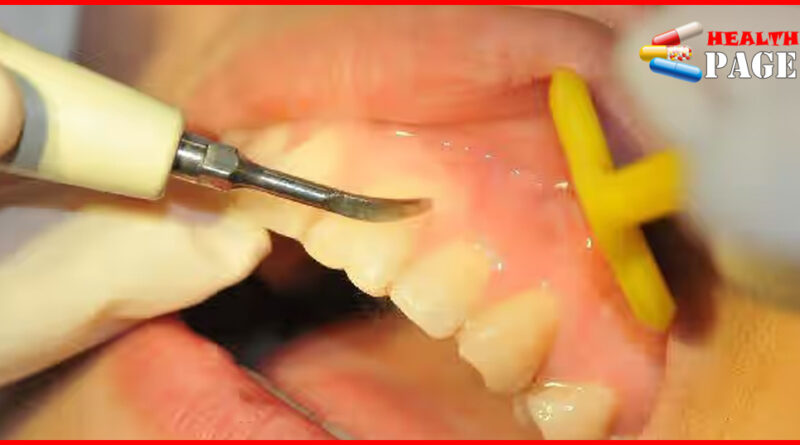Does teeth cleaning harm teeth?
As modern people’s awareness of oral health increases, more and more people choose to go to dental clinics or hospitals for regular check-ups and undergo ultrasonic teeth cleaning .
Teeth cleaning, also known as
supragingival scaling , refers to the use of scaling instruments to remove tartar, plaque and stains above the gums, and polish the tooth surface to delay the redeposition of plaque and tartar.
Plaque and tartar are the main local irritants of periodontal disease, and scaling is the most effective way to remove
But some people are worried that teeth cleaning will hurt their teeth. They will use their own personal experience to prove to their friends that cleaning will hurt their teeth. For example, “My teeth became sour after teeth cleaning”, “The gaps between my teeth became bigger after cleaning”, “My teeth became loose after cleaning”, “After teeth cleaning once, I have to go for frequent cleanings in the future, which is very expensive”, which makes some people no longer dare to go to the hospital for cleaning.
Teeth cleaning method
Does teeth cleaning really harm teeth? Before discussing this issue, let’s first understand the common ways of teeth cleaning. The current ways of teeth cleaning are mainly divided into three types according to the different instruments used: manual cleaning , sandblasting teeth cleaning and ultrasonic teeth cleaning .
Manual teeth cleaning
Manual teeth cleaning is performed by doctors using manual scalers of different types.

Advantages
For doctors, manual cleaning feels better and allows them to feel the presence of tartar more clearly. Moreover, the force is relatively gentle, and there is no water spray during the operation, so patients will not feel strong discomfort. Therefore, the chance of cross-infection in the clinic due to water spraying will be reduced.
Disadvantages
Obviously, it is time-consuming and laborious. It usually takes about 3 hours to complete manual cleaning of the entire mouth of teeth. For patients with a lot of tartar, it may even be completed in several sessions. During this process, the patient needs to keep his mouth open. It is undoubtedly very uncomfortable for the patient to keep his mouth open for a long time, and the long operation is even more torture for the doctor. Therefore, manual cleaning is used less and less in clinical practice.
Sandblasting
It uses a special sandblasting tooth powder (with sodium bicarbonate powder as the main ingredient) to spray the tooth surface with a sandblasting handpiece to remove dental plaque and pigments.

Advantages
It can polish the tooth surface. After ultrasonic or manual cleaning, the patient’s tongue tip will generally feel the tooth surface is rough and uneven. After sandblasting, the rough feeling of the tooth surface is gone. In addition to polishing the outside of the teeth, sandblasting can also polish the tooth surface between the teeth. The polished tooth surface is not easy to adhere to dental plaque and pigment. In addition, the vibration during the cleaning process is smaller, softer and more comfortable. It can reach into the gums to clean dental calculus without damaging the gums.
Disadvantages
Damage to gums, especially when the tooth roots are exposed after removing tartar, further professional treatment cannot be carried out in time, which not only causes unbearable pain to patients, but also aggravates the periodontal disease. Moreover, only visible tartar is removed, leaving the deep tartar with the strongest pathogenic effect, which fails to achieve the purpose of preventing and treating periodontal disease.
Ultrasonic cleaning
The ultrasonic dental cleaner consists of an ultrasonic generator and a transducer. The generator emits electromagnetic oscillations and amplifies the power. The transducer converts high-frequency electrical energy into ultrasonic vibrations with a vibration frequency of 20,000 to 45,000 Hz . The high-frequency oscillation of ultrasound removes tartar, plaque and color and polishes the tooth surface to delay the re-deposition of plaque and tartar.
Advantages: fast; effective; easy. And the treatment head of the dental cleaning machine is smooth, it will not hurt the surface of the teeth, so you will not feel pain during the treatment.
Disadvantages: Patients with infectious diseases should not use ultrasonic dental scalers because the spray it produces will pollute the operating area and the surrounding environment. Patients with respiratory diseases should not use ultrasonic dental scalers because the water and spray during ultrasonic treatment will bring danger to these patients. Generally, patients with pacemakers are prohibited from using ultrasonic dental scalers to avoid symptoms such as heart rhythm disorders caused by interference with the work of the pacemaker.
After understanding the method of cleaning, we should understand, let’s talk about why some people feel uncomfortable after cleaning?
Why do I feel uncomfortable after having my teeth clean?
In fact, facing such criticism, we doctors are also helpless. In fact, some people feel that their teeth are slightly sore and soft after cleaning their teeth. Even feel that the gaps between their teeth have become larger. This is because the hard tissues on the tooth surface are mechanically rub after cleaning the teeth. Causing the teeth to be slightly allergic. However, the damaged pressure surface will soon be calcified by the minerals in the saliva. The sensitive symptoms will disappear.
If the gaps between teeth are large, it means that you have periodontal disease, which causes gum atrophy. After removing tartar, the gaps between teeth are expose. Causing people to mistakenly believe that the gaps between teeth have widened .
For some patients with severe periodontal disease. Dental calculus acts as a periodontal splint , connecting several loose teeth into a whole. So the teeth do not feel very loose. However, once the dental calculus is remove, the patient will feel that the looseness of the teeth has increased.
In fact, these are not cause by cleaning, but by periodontal disease itself. The reason why patients suffer from periodontal disease is that dental calculus is one of the culprits. If dental calculus is not remove in time, the gums will further shrink and the alveolar bone will be further absorb. Which will make the teeth looser and even impossible to save.
suggestion
Regular “cleaning” is an important measure for oral health care. Going to the dental hospital for cleaning every six months to a year can not only remove tartar, plaque, and pigments. That cannot be brush off, thoroughly clean teeth, maintain oral hygiene. But also detect dental diseases early, all of which save money.
However, it should be point out that incorrect cleaning methods, especially incorrect use of ultrasonic cleaning machines , will indeed cause greater wear and tear on teeth.
Therefore, when you have your teeth cleaneand an oral examination. You must choose a regular, reliable, and professional doctor.



Pingback: Did you know that AIDS phobia is actually a mental illness?
Pingback: Dental physiognomy: uneven teeth reflect personality
Pingback: Tooth enamel, the secret you don't know!
Pingback: What is best dental floss? benefits of using dental floss?